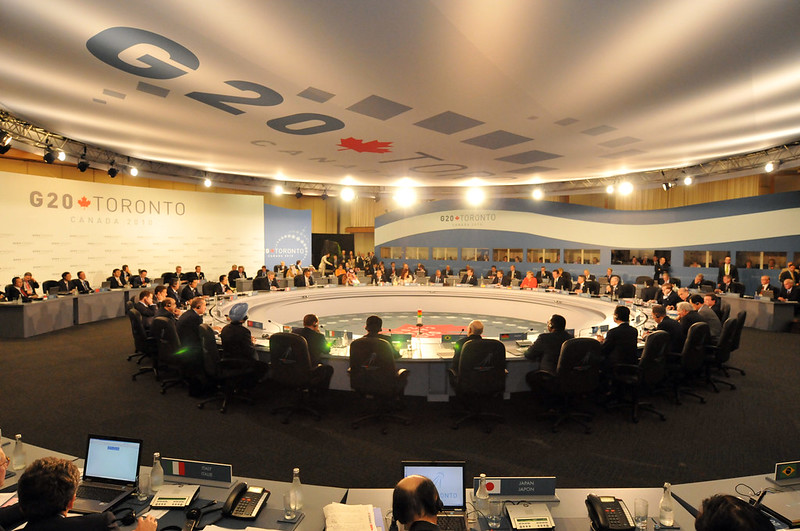Global Alliance Against Hunger and Poverty
 In 2023, about 750 million people faced hunger globally and emergency levels of food insecurity reached a five-year high due to climate change, conflict and economic pressures. In 2024, the United Kingdom (U.K.) joined Brazil’s Global Alliance Against Hunger and Poverty, announcing new investments in global food security.
In 2023, about 750 million people faced hunger globally and emergency levels of food insecurity reached a five-year high due to climate change, conflict and economic pressures. In 2024, the United Kingdom (U.K.) joined Brazil’s Global Alliance Against Hunger and Poverty, announcing new investments in global food security.
At the annual G20 Leaders’ Summit in Rio de Janeiro in November 2024, representatives from 19 countries gathered to address global challenges. While the summit originally focused on macroeconomic issues affecting their respective nations, its agenda has expanded to include sustainable development, health, trade, climate change and anti-corruption efforts.
Key Goals and Objectives of the Alliance
Brazil’s G20 presidency proposed the Global Alliance Against Hunger and Poverty, with its finalization and launch following the 2024 summit. The Alliance’s founding documents acknowledge previous efforts to address hunger and poverty but emphasize the multidimensional impact poverty has on children and adults, creating a cycle that requires effective intervention, with a focus on country-level policy action and knowledge sharing.
The Alliance identifies eradicating all forms of poverty as “the greatest global challenge” and reminds governments that social protection is a universal right and a key component of the Sustainable Development Goals (SDGs).
Its primary goals include increasing funding for household and government initiatives, raising awareness of poverty’s effects and solutions and integrating sustainable agricultural development into the fight against hunger and poverty. The push for countries to address these ongoing issues stems from slowing progress toward the 2030 targets.
The Alliance projects that 622 million people will still live in extreme poverty by 2030—nearly double the targeted number. To tackle this, it plans to match countries’ needs with donors and technical support, helping fund and implement solutions to hunger and poverty.
The UK’s role in the Alliance
The 2024 G20 Summit marked Prime Minister Keir Starmer’s first appearance, where he expressed admiration for Brazil, stating, “Your culture and your commitment to working people, more than just their right to be free from exploitation, but their right to be lifted, to enjoy greater opportunities and to enjoy life.” Aligning with the Alliance’s goals, the U.K. joined as a founding member and now serves on its Board of Champions to fight hunger and poverty.
The U.K. has announced a £70 million support package to tackle food insecurity and climate challenges. This includes up to £50 million for the new Resilience and Adaptation Fund, which will help food-insecure countries like Bangladesh, Ethiopia and Chad develop sustainable agriculture to strengthen food resources amid changing or extreme weather. An additional £25.5 million will support Commercial Agriculture for Smallholders and Agribusinesses, focusing on protecting rural communities and agriculture-dependent populations from the effects of climate change.
At the summit, Prime Minister Keir Starmer emphasized the U.K.’s commitment to “delivering practical support for communities to keep food on the table.” Indeed, these funds align with that promise as the U.K. and the Alliance advance proposals and projects to reduce global hunger and poverty.
Looking Ahead
The Global Alliance Against Hunger and Poverty seeks to drive meaningful progress in eradicating food insecurity and extreme poverty worldwide. Furthermore, by uniting nations, mobilizing funding and prioritizing sustainable agricultural solutions, the Alliance aims to support communities most affected by economic and climate pressures. With renewed commitments and collaborative efforts, the initiative offers a path toward building resilience and improving livelihoods for millions globally.
– Caitlin Mulholland
Caitlin is based in Lymington, UK and focuses on Good News for The Borgen Project.
Photo: Flickr
